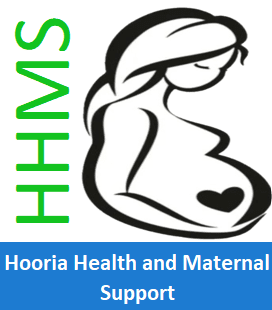Why Cultural Competence Matters in Postpartum Care

Posted on October 20th, 2025
Introduction: Culture Is the First Language of Care
Every mother heals in her own way, through the foods she eats, the prayers she whispers, and the traditions that cradle her after birth. Culture shapes how we experience pain, rest, love, and community.
At Hooria Health and Maternal Support, we believe care must speak the same language as the mother, not just in words, but in values, rituals, and respect. That’s what cultural competence means: meeting each mother where she is, with understanding and grace.
What Is Cultural Competence in Postpartum Care?
Cultural competence goes beyond translation or awareness. It’s the practice of listening deeply, learning continuously, and caring in ways that align with a family’s beliefs and traditions.
For doulas and care providers, it means:
• Understanding cultural postpartum rituals (like 40-day rest periods)
• Respecting dietary preferences and spiritual practices
• Recognizing family hierarchies and communication styles
• Creating trust for mothers who may have experienced bias in medical systems
It’s not about having all the answers; it’s about asking with humility.
The Gap in Mainstream Maternal Care
Too often, mothers from immigrant, refugee, or BIPOC communities face care systems that overlook their cultural needs. They’re told to “get back to normal” when their culture says, “stay still and be cared for.” They’re offered generic meal plans when they crave the warm broths and spiced teas of home.
This disconnect can make mothers feel unseen, even when surrounded by professionals.
That’s why cultural competence isn’t optional. It’s essential to trust, safety, and emotional wellness.
Real-World Example: A Doula Who Understands
When a Somali mother delivered her first child, she hesitated to express pain, worried she’d be judged as weak. Her doula from Hooria Health and Maternal Support, who shared her cultural background, noticed her silence.
Instead of asking, “Are you in pain?” she asked softly in Somali, “Ma fiicantahay?”, Are you okay? The tone, the language, the empathy, everything changed. The mother exhaled. She finally felt safe to be honest.
That’s the power of culturally competent care: it transforms the clinical into the compassionate.
How Cultural Competence Supports Healing
When care honors culture, mothers:
• Recover faster, because stress levels drop in trusted environments.
• Feel more confident when rituals and foods from home are encouraged.
• Bond more deeply when traditions of touch, song, and prayer are preserved.
• Access care sooner, because they feel understood, not dismissed.
Culture is not a barrier to healing; it is the bridge.
The Role of Doulas in Cultural Understanding
At Hooria Health and Maternal Support, our doulas and care team receive ongoing training in cultural humility, learning how to ask, not assume.
We approach every family with three guiding principles:
1. Respect: Every tradition has wisdom.
2. Curiosity: We listen before advising.
3. Adaptability: We blend modern medicine with ancestral care practices when possible.
This approach builds not just comfort, but connection, the foundation of true healing.
Cultural Competence Benefits Everyone
Culturally aware care doesn’t just help the mother; it strengthens families, communities, and even healthcare systems. When people feel seen and respected, they engage more fully, communicate more openly, and heal more deeply.
It’s not just inclusive, it’s effective.
Final Thoughts: Culture Is Care
Every tradition, every ritual, every language carries wisdom about how to heal after birth. When care honors those roots, mothers don’t just recover, they reclaim their strength.
At Hooria Health and Maternal Support, cultural competence isn’t a policy; it’s a promise. We walk beside mothers of all backgrounds with respect for their heritage, their voice, and their story.
Contact Hooria Health and Maternal Support today to start a conversation about culturally grounded postpartum care and support.
Contact Us
Reach Out Today
Explore our caring maternal health solutions designed for you. Connect with our team today and begin a journey towards empowerment and support for you and your family.
